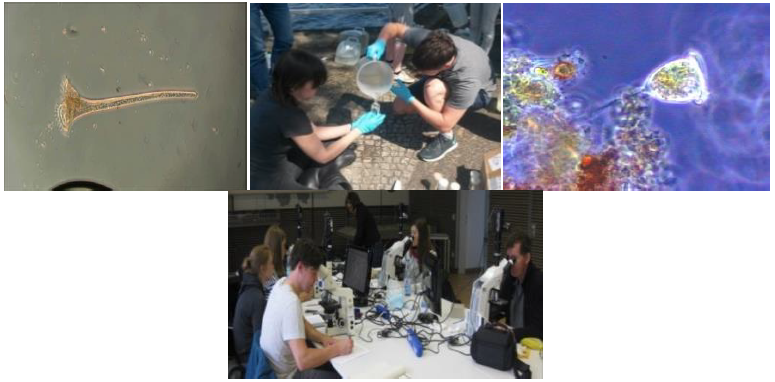Fachbereichsseminar 15.12.2017, 14.00 Uhr, HS 411 (1.OG, NAWI)
Though water treatments plants have undergone several renewals and technical progresses during the last decades, the elimination of pathogenic bacteria and viruses from wastewater still is insufficient and leads to temporarily high abundances of pathogens in rivers. This problem is in the focus of a project funded by the Federal Institute of Education and Science in Germany (‚Flusshygiene‘), which will be subject of the talk. In the presentation, results of this study regarding the occurrence of protozoa (with focus on ciliates) in different rivers in Germany will be presented. Due to their different morphology, velocity, anthropogenic influences etc., the protozoan community of these rivers differed markedly. Possible reasons for these differences will be discussed in the talk. Because protozoa are important consumers of bacteria, their influence on riverine bacteria and especially pathogens might be significant and thus be important for the actual amount of pathogens. By considering the food spectra of the ciliates found, their potential regarding the elimination of bacteria was assessed during the study. The occurrence of bacteria and by these pathogens is presumed to be high during high water precipitation events when wastewater might enter the rivers without having passed waste water treatment plants. Moreover, it is unknown how protozoa react during such events. Therefore, this aspect was also highlighted during the study. Additionally, experiments concerning the influence of epi-benthic protozoa on pelagic bacteria were conducted and results will be shown in the talk.
Assoz.-Prof. Dr. Sabine Agatha und FB-Leiter Univ.-Prof. Dr. Stefan Dötterl
Gäste sind wie immer herzlich willkommen!
Schedule of the SEMINAR Series Dept. Ecology & Evolution, Oct. 2017 – July 2018 





